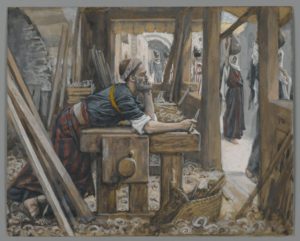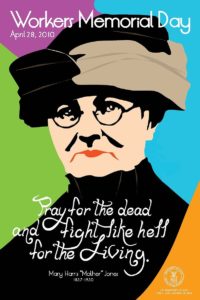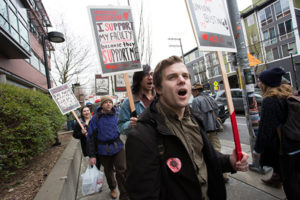Adjuncts active at Fordham, Seattle, St. Louis U
This spring, once again, adjunct faculty are on the move at Catholic Colleges around the United States! On April 14, as fast-food workers across the nation demonstrated for living wages as part of the “fight for $15,” several Catholic campuses witnessed events drawing attention to the poverty wages earned by too many non-tenured college instructors. In New York, Fordham Faculty United sponsored an event on “Labor Justice at Jesuit Institutions.” At Seattle University – a Jesuit institution that refuses to recognize its adjuncts’ right to organize – instructors and students held a march and a “fast for justice.”
On the brighter side, instructors at St. Louis University filed for a union election. The adjuncts are voting now on whether to join SEIU Local 1; ballots are scheduled to be counted May 23.









